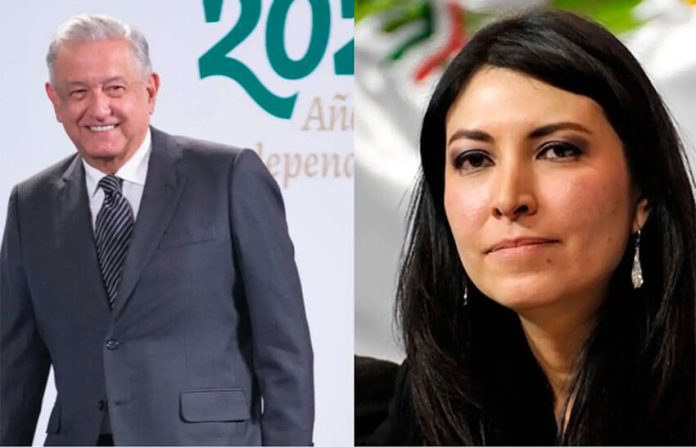President López Obrador unnerved financial markets on Wednesday by nominating an obscure public sector economist to head the country’s central bank, causing the peso to slide to its lowest level since March.
The announcement came a day after unexpected news that the president had withdrawn his previous nominee, Arturo Herrera. a former finance minister better known to investors.
At his morning news conference on Wednesday López Obrador gave little explanation for his change of heart but tried to calm fears that he wants to interfere in the bank’s policymaking.
“We’ve demonstrated with the facts that we’re respectful of the autonomy of the Bank of México,” he told reporters. “There hasn’t been any meddling by the government, by the finance ministry in the Bank of México’s decisions.”
The Mexican peso weakened dramatically on the announcement, falling as much as 1.8% against the US dollar to trade as low 21.6 to the reserve currency. The slide made the peso the worst-performing emerging market currency on Friday, according to Bloomberg data.
![]()
Victoria Rodríguez Ceja, who has run federal government spending at a time of deep austerity cuts, does not have monetary policy experience but is a longtime public finance official at the state and federal level.
Cutting public spending is a key tenet of López Obrador’s government, and he sees it as closely linked to the fight against corruption.
“The market is very cautious because we don’t know [Rodríguez Ceja’s] position on inflation, especially on her perception of whether it is transitory or not,” said Gabriela Siller, head of financial and economic research at Banco Base. “Hers wasn’t a name being talked about as a possible candidate.”
If confirmed by the Senate as expected, Rodríguez Ceja would be the first woman to run the central bank. Her appointment would also mean that the majority of the bank’s five governors would be women.
The nomination comes at a challenging time for the bank, as inflation in the country surges — a phenomenon testing policymakers across the globe. New figures from Mexico’s statistics agency INEGI on Wednesday showed that inflation in the first half of November had climbed 7.05% from a year previously, the largest increase in 20 years.
In an attempt to tame inflation, the Bank of México has raised rates at the past four consecutive meetings.
Herrera — the previous nominee — had been seen by markets as more dovish than outgoing governor Alejandro Díaz de León. Though Rodríguez Ceja’s views are less well known, the last rate rise was taken with a 4-1 vote, meaning that her vote may not sway policy in a new direction in the short term.
The unexpected change in nominee comes the same week that the president published a directive to fast-track mega projects, a move the opposition — and lawyers — said was unconstitutional, vowing to bring legal challenges.
© 2021 The Financial Times Ltd. All rights reserved. Please do not copy and paste FT articles and redistribute by email or post to the web.
